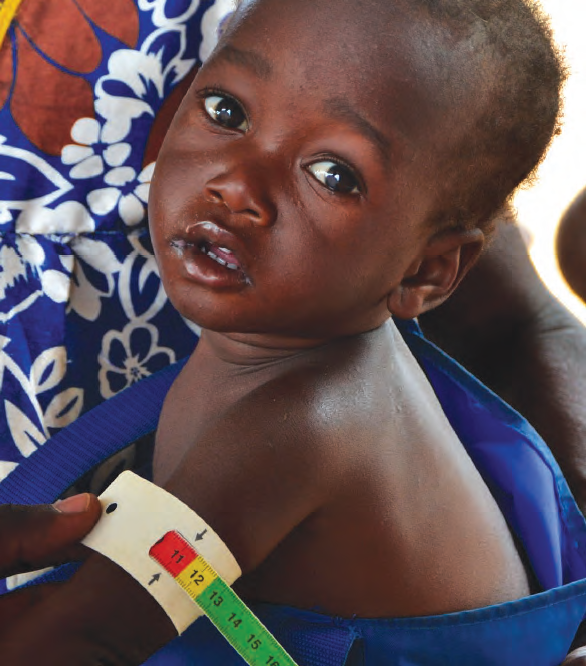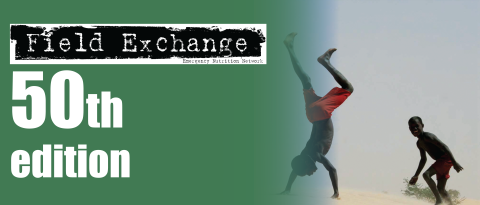Field Exchange: Fifty issues young


Lawrence Haddad is Senior Research Fellow at International Food Policy Research Institute. He is the former Director at the Institute of Development Studies (IDS) (2004-2014). An economist, his main research interests are at the intersection of poverty, food insecurity and malnutrition.
Someone recently asked me: is the nutrition community more fragmented than other development “sectors”? My answer was a firm no. At IDS, I was exposed to communities in climate, health, governance, participation and globalisation. All of them have fault lines and they tend to be very similar across sectors. Some examples? Those who like to plan and manage development processes versus those who prefer organic, emergent processes. Those who favour rights based arguments against those who prefer economics based arguments. Those who like to measure with numbers and those who like to describe with narratives. Those who look to the state first and those who believe market orientated solutions are the real thing. Those who favour genetic modification if proven safe and those who think it is the devil’s work. All of these are found in nutrition, of course, but they are just mirroring more widespread world views, often formed at very early ages and very resistant to new evidence. We are pretty much like every group of people trying to contribute to a better world.
Unfortunately we are also like other development areas when it comes to learning from the field. That is, we say it is vital and then we steadfastly refuse to do it. Why should we do so? My own limited experience in the programme world tells me that real problems have to be resolved by health workers, agricultural extension agents, programme staff, farmers, mothers and aid workers. They have no option, they have to innovate on the fly, extemporise, roll with the punches and innovate, innovate, innovate. The tragedy is that no one is around to document the dilemmas and capture the innovations that they spur. The frontline workers are too busy helping people and communities. Their supervisors are too busy managing and raising resources and reporting to their donors. Consultants have no strong incentives to share innovations beyond their immediate funders. And researchers? Well, they usually find out about the innovations too late. And even if they were in the right place at the right time, well, it’s not publishable, is it?
Big implementing agencies do some of this documentation and sharing, but they should do more. And even here, the pressure to make their organisations look good can give us only one particular view on an issue. So there is a space for a knowledge exchange that links the relative chaos and improvisation of the frontlines with the more measured but less timely analysis from the backline. Enter Field Exchange (FEx). FEX has provided those who don’t work at the cutting edge of action a glimpse of the problems, paradoxes, innovations and successes that go hand in hand with an intensity of action driven by the very tangible costs of inaction. We learn about the impracticalities of, say, targeting, of measuring, of working without information, of trying to coordinate, consult and report when communications are difficult, trust is low, roads are destroyed and funds arrive after their peak need. For those working in this context, I would imagine FEX helps them to share their experiences, learn from each other, not reinvent the wheel and be heard. And they need to be heard. The development and humanitarian communities are like ships passing in the night.
I would hope that FEX can help bridge the development-humanitarian divide by bridging the frontline-backline divide. Development practitioners need to understand the role that shocks and crises can play in creating a context in which their models simply don’t work or their assumptions simply don’t hold. Likewise, humanitarian practitioners need to understand that some of the actions they take can set the course of development for many years, sometimes in very unknowing ways.
Many of us in our 40s and 50s were taught about development with a mental model of a rural, fairly stable context. Well, the world is changing. Poverty (and I would guess undernutrition) is increasingly becoming concentrated in fragile contexts and, to a lesser extent, in urban ones. Research in fragile contexts is really difficult. FEX should increasingly inform the development community and the wider nutrition community about scaling up nutrition in fragile contexts. In fact, that would be a great topic for a special issue. Scaling Up Nutrition (SUN) countries tend to be better governed and less fragile than non-SUN countries at similar income levels. What does scaling up mean in Afghanistan or Syria or in northern Nigeria? What do people working in those contexts have to say about scaling up? They may simply be trying to avoid scaling down. How can the avoidance of scaling down help us to think about scaling up in those contexts and in less fragile places?
Once when sitting next to Hilary Benn, the then UK Secretary of State for International Development, I pitched the idea of something like YouTube for development. Innovations from the field, captured in 1-2 minute videos, stories told by practitioners, organised and curated by an network of non-governmental organisations (NGOs). It never went anywhere (which is probably just as well) but I think the spirit of this remains important. We talk a lot about amplifying the voices of those in poverty or experiencing hunger or malnutrition, but surely hearing from those working closely with them is also important. This is why I will continue to glance at the list of articles in FEX, why I think it should broaden its reach into the nutrition “development sector” and why it should consider going beyond the printed word to the spoken word. Life begins at 50 (believe me). Viva FEX!
Follow Lawrence Hadaad’s blog – unguarded reflection, thoughts and ideas on international development - http://www.developmenthorizons.com/


